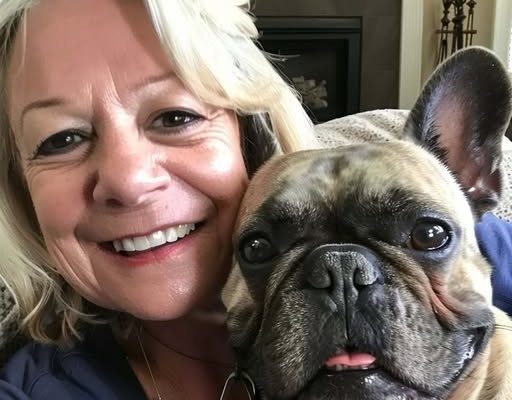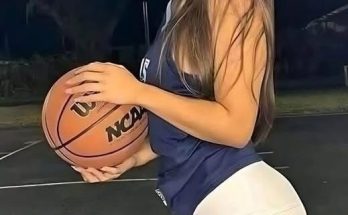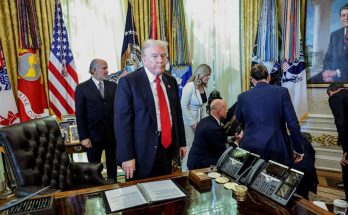They say grief brings families together, but for mine, it did the exact opposite. My mother’s grave was still fresh when my father started changing everything—things I never could’ve seen coming. But what he didn’t realize was that my mother had planned one final move, and it was brilliant.
I was nineteen when she died. One day, she was laughing at a ridiculous reality show, and the next, she couldn’t even hold a spoon. Cancer doesn’t wait for farewells. Neither did my dad.
My mom was the warmth of our home, and wherever she was, so was Peanut—her little French Bulldog, always at her heels, always close. When she fell ill, Peanut barely left her side, curled up on the bed as if her presence alone could hold my mom in this world a little longer.
I tried to be there too, but I still had to function—eat, sleep, pretend my father wasn’t already trying to erase her before she was even gone.
He never loved her—not the way she deserved. No flowers, no tenderness, no real attention. And when the doctors told us it was just a matter of time, all he did was nod, like they’d told him the groceries were running low.
“I don’t want to go,” I whispered, clutching the borrowed black dress that smelled like someone else’s life.
“You have to,” he said, adjusting his tie in the mirror like we were heading to a meeting, not my mom’s funeral.
“Peanut should come.”
He scoffed. “She’s a dog, not a guest.”
“She was Mom’s dog.”
“And Mom’s gone.”
Those words knocked the air from me. Peanut pressed into my leg, shaking. I knelt, stroking her ears. “I won’t be long.”
She licked my fingers like she understood.
The funeral was a blur of strangers and empty condolences. My father barely spoke. Just nodded like he was completing a to-do list. When we got home, he tossed his tie on the kitchen counter and said flatly, “It’s done.”
“Done?” I snapped. “She just died.”
“It’s time to move on,” he said, like it was that simple.
That night, I took Peanut to bed. Her small, warm body curled up next to mine gave me the first ounce of comfort I’d felt in days.
Until the next afternoon.
I came home to silence. No tiny nails tapping on the floor. No excited bark. Just the clink of a bottle as my father opened another beer.
“Peanut?” I called out, heart racing.
He didn’t look up. “She’s gone.”
“What?!”
“Took her to a shelter,” he said casually. “She didn’t belong here anymore.”
I felt the floor disappear beneath me. I ran. No plan—just instinct.
Three shelters later, I found her.
She was curled up in the back of a cold metal cage, trembling. When she saw me, her tail thumped weakly. She whimpered—soft and confused.
“Peanut,” I whispered, tears burning my eyes.
“I’m here to take her home,” I told the woman at the front desk.
But her face shifted. “I’m sorry… your father signed her over.”
“He had no right.”
“Legally, she’s not yours. And someone’s already adopted her. They’re picking her up today.”
My heart broke all over again.
I was too late.
Two weeks passed in silence. My father barely acknowledged me. The house felt lifeless. Like everything that mattered had been scrubbed out.
Then the lawyer called.
“There’s something in your mother’s will we need to discuss,” he said.
When I arrived, my father was already there, tapping his foot, impatient. He wasn’t grieving—he was waiting for money.
The lawyer opened a folder. “Your mother’s will is very detailed.”
My dad sat up straighter.
“Everything your mother owned prior to marriage remained separate property. And since everything in the home was purchased with her assets…” He paused. “It all goes to her chosen beneficiary.”
My father leaned forward eagerly.
The lawyer looked at me. “Peanut.”
Silence.
My father laughed bitterly. “The dog? That’s a joke.”
“It’s not,” the lawyer said evenly. “Everything—house, savings, belongings—was left to Peanut.”
“You can’t be serious,” my father snapped. “A dog can’t own property.”
“Correct,” the lawyer replied. “Which is why her legal guardian now controls the estate.”
He slid the paperwork toward me.
I was Peanut’s legal guardian.
Which meant… everything was mine.
My father’s face flushed red with rage. For once, he wasn’t indifferent—he was furious.
“You think this is fair?” he barked.
“She thought it was,” I said quietly.
He stormed out of the office. “Then I’ll get the dog back.”
I smiled. “Good luck.”
He had no idea that by the time he’d dumped Peanut at that shelter, my mom’s best friend—Ashley—had already claimed her. She’d volunteered there for years and took Peanut home the moment she saw her name on the intake sheet.
By the time my father showed up, Peanut was gone.
So was I.
Ashley took me in, treated me like family. I had the house. The money. But more importantly, I had Peanut—my last piece of Mom. She slept by my side every night, loved and safe.
And my father?
He had nothing.
Exactly what he gave us.
The last words I ever said to him?
“Mom always knew you’d end up alone.”



